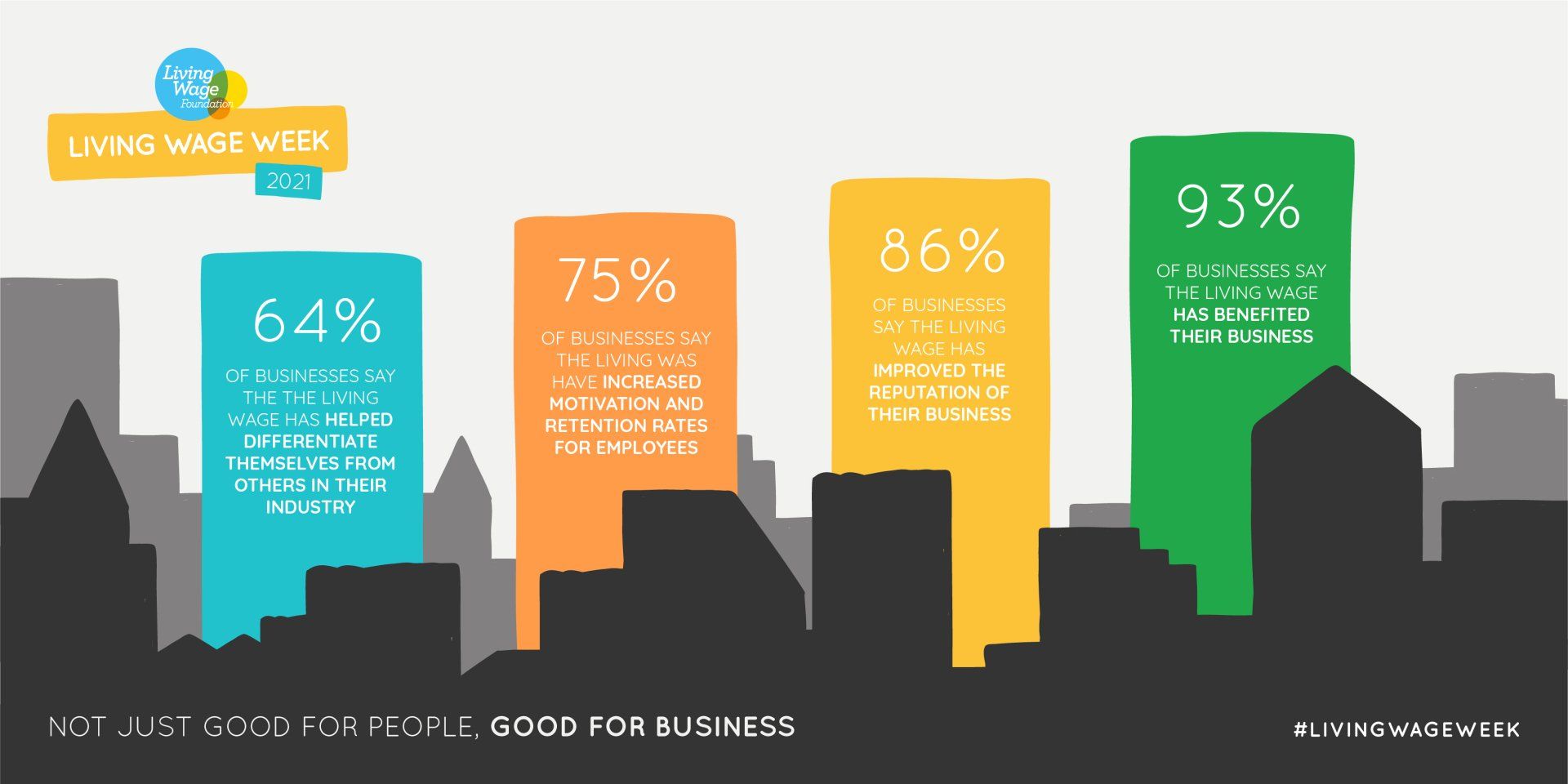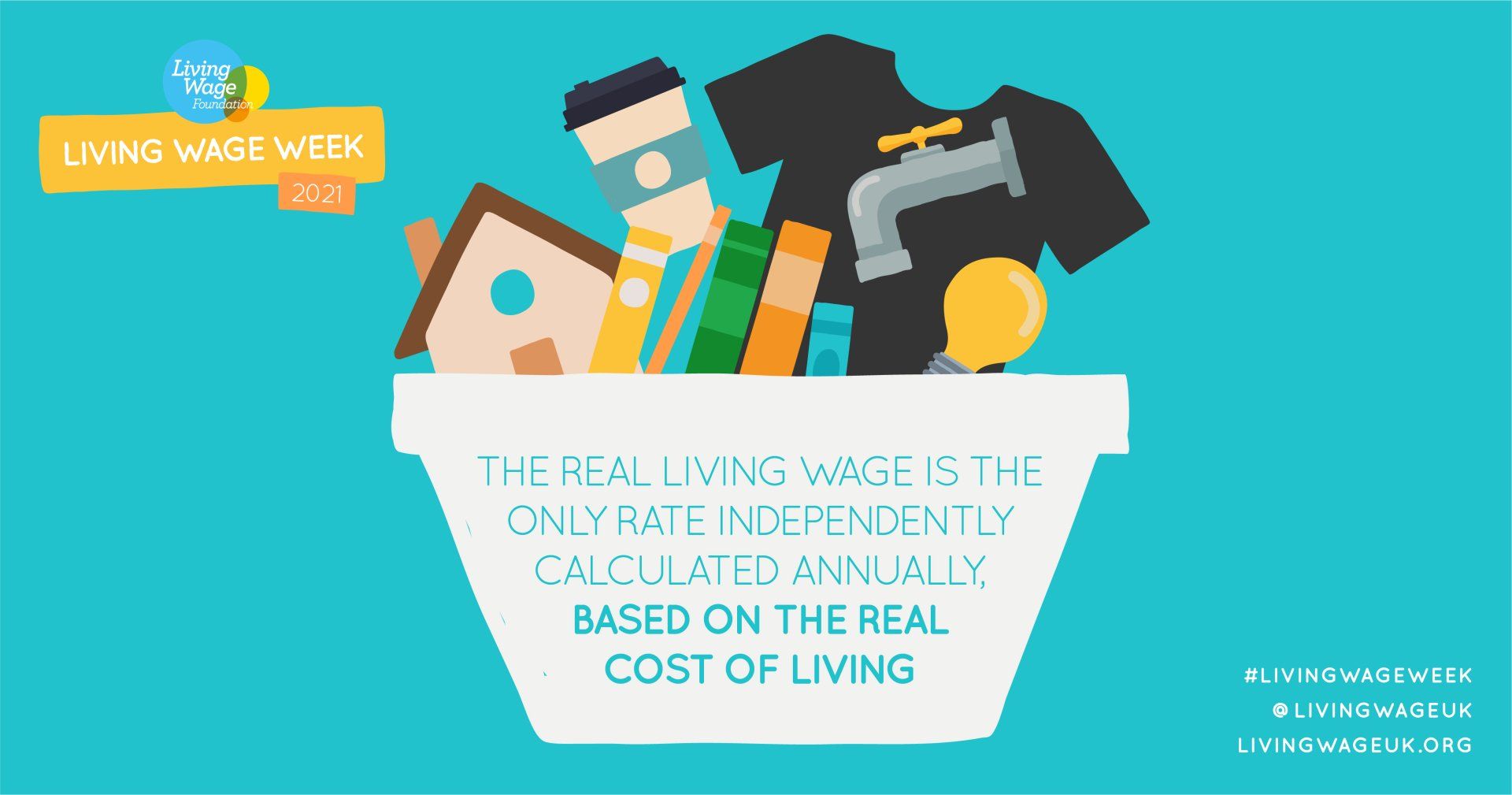The Real Living Wage
Jane Baalam
November 17, 2021
What is the Real Living Wage?
It’s an interesting thing that lots of people are not aware that the Real Living Wage is different to National Minimum Wage and National Living Wage.
Especially those that are earning these rates. They really don’t know how it works and maybe it’s time we made it clear. So, we put together the following brief:
Feel free to share this with your friends, staff, colleagues and anyone else who needs or ought to know.
Minimum Wage and Living Wage are minimum pay rates set by the Government that all Companies must pay their employees, the current pay rates are due to rise in April 2022:
- National Living Wage for over-23s: from £8.91 to £9.50 an hour
- National Minimum Wage for ages 21-22: from £8.36 to £9.18
- National Minimum Wage for ages 18 to 20: from £6.56 to £6.83
- National Minimum Wage for under-18s: from £4.62 to £4.81
- The Apprentice rate: from £4.30 to £4.81 - This applies to under 19’s, or people over 19 in their first year of apprenticeship. Apprentices older than 19 who have finished their first year are entitled to the relevant wage for their age group.
The Minimum Wage is the same across all parts of the UK.
National Living Wage was introduced by the Government inspired by the Living Wage campaign, it wasn’t calculated according to what an employee needs to live but, on a target to reach of 66% of national median earnings by 2024. The Government takes into consideration what is affordable for businesses.
The Real Living Wage is a wage rate based on what people need to live. It covers anyone age 18 and above and is currently £10.85 per hour in London £9.50 for the rest of the UK. The Real Living Wage isn’t statutory, it’s voluntary, but the Living Wage Foundation encourages all employers that can afford to do so, to pay their staff the Real Living Wage so that they can meet the costs of living.
Benefits for Businesses:
- It improves the reputation of your Business
- It Increases motivation and retention of staff
- It helps differentiate your business from others in the industry
- It improves relationships between managers and staff

You can become a Living Wage Employer by becoming accredited, further details can be found here:
Become a Real Living Wage Employer | Living Wage Foundation
Reward Risk Management is proud to be a Real Living Wage Employer. We chose to become accredited because we feel the RLW is important and telling our clients that we support it, is a fundamental way to get them to think about their values and what it could mean to their staff. We believe that if your staff are paid a real and relevant wage, they can stop worrying about how much they earn, and start concentrating on doing their jobs really well – they will be more engaged with you.
The foundation has been successful with the Real Living Wage, giving many employees the peace of mind that they can make ends meet and live their lives out of poverty. They have now introduced a new Living Hours Standard. It calls on Employers to provide employees the right to:
- Notice periods for shifts: of at least 4 weeks’ notice, with guaranteed payment if shifts are cancelled within this notice period
- The right to a contract that reflects accurate hours worked
- A guaranteed minimum of 16 hours a week (unless the employee requests otherwise)
(Credit source: Living Wage Organisation)
Why is this important for Employers and Employees?
It doesn’t matter what industry you operate in, the bottom line for every business is to maximise profits. To do that you need to employ great employees who you can retain long-term. Many Companies pay the minimum that they can get away with, which is not going to produce committed long-term and loyal employees, just simply increase staff turnover.
This strategy will decrease your profit overall, by causing the following issues:
- Low wages won’t attract great employees - great employees know their worth.
- Unhappy employees look for new jobs, productivity will drop during these times.
- Employees who don’t feel valued won’t feel the need to be loyal.
- If you don’t pay your employees well, your competition will.
- Paying an employee, a lower wage, sets the standard of work lower.
Valued and happy employees stay loyal to their Companies, they work hard and always have your best interests at heart.
Sir Richard Branson once said this:
‘Take care of your employees and they will take care of your business. It’s as simple as that.’
Loyal employees are assets, not liabilities.










